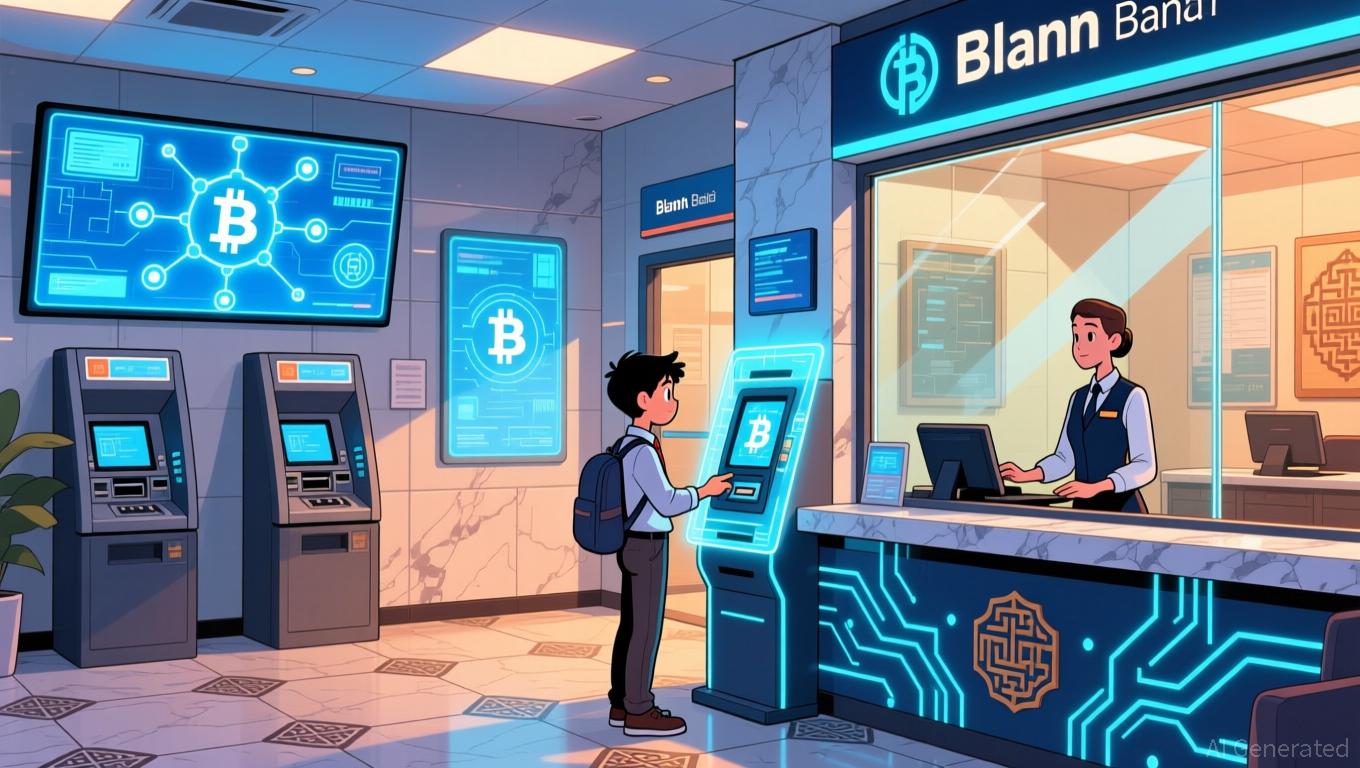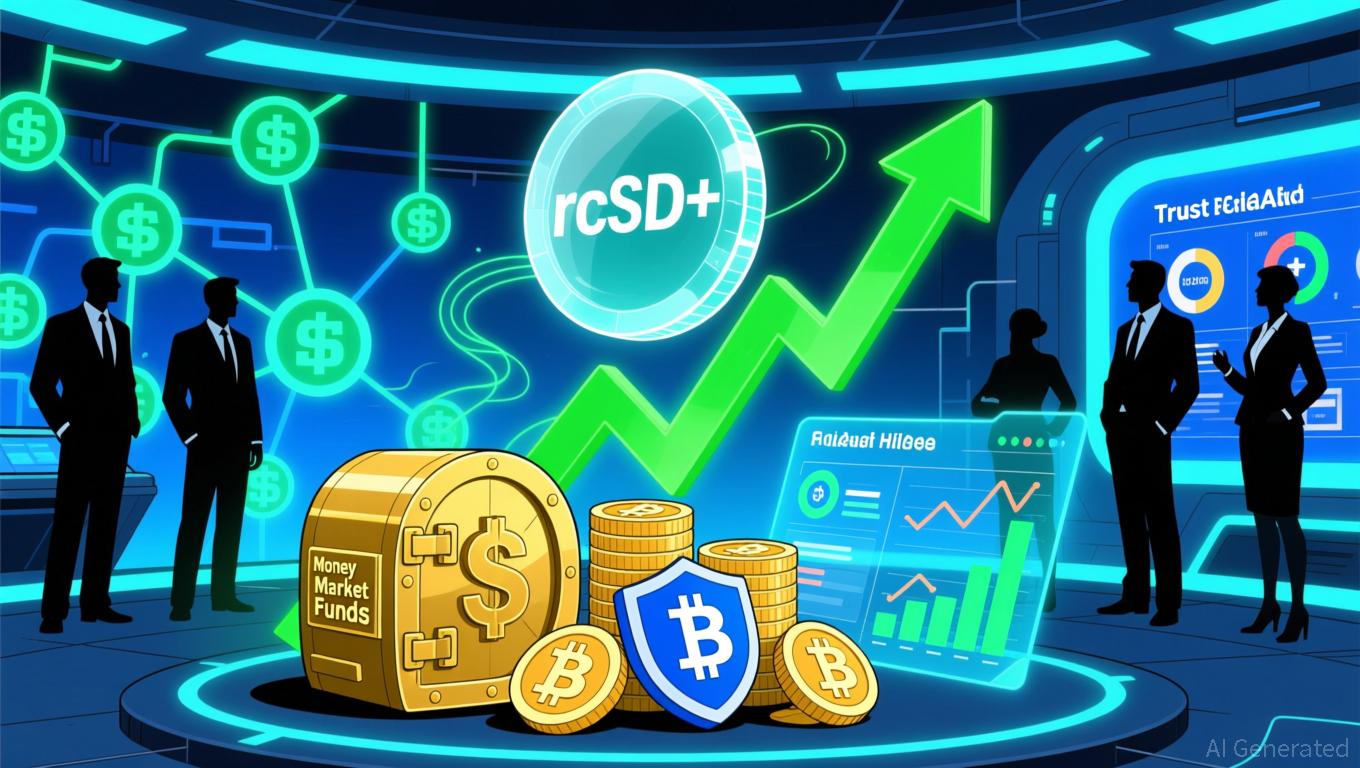Telcoin Closes DeFi Trust Divide by Launching the First Compliant Stablecoin
- Telcoin becomes first U.S. bank to launch eUSD, a regulated stablecoin backed by dollar deposits and Treasuries. - The Nebraska-chartered bank aims to bridge DeFi and traditional finance through transparent, reserve-backed blockchain solutions. - Global momentum grows with Japan's bank stablecoin pilot and USDsui's launch, signaling maturing digital asset infrastructure. - Regulatory scrutiny intensifies as DeFi exploits and enforcement actions highlight risks, positioning Telcoin's compliance model as a
Telcoin Achieves Landmark Status as First Approved Regulated Digital Asset Bank in the U.S.
Telcoin has reached a groundbreaking achievement in American finance, becoming the first organization to receive a charter for a fully regulated digital asset bank. The Nebraska Department of Banking and Finance has officially authorized the Telcoin Digital Asset Bank, making it the country’s first Digital Asset Depository Institution. This milestone represents a significant advancement in connecting conventional banking with decentralized finance (DeFi). Telcoin intends to introduce eUSD, the first stablecoin issued by a bank and backed by U.S. dollar deposits and short-term Treasury securities, as reported by a

This initiative reflects a rising interest from major institutions in adopting blockchain technology. Leading Japanese banks, including MUFG Bank and Sumitomo Mitsui Banking Corp., have recently received regulatory approval to test a stablecoin, indicating a similar trend worldwide, according to a
Paul Neuner, CEO of Telcoin, underscored the importance of regulatory adherence: “We are demonstrating that a bank can responsibly issue on-chain Digital Cash and operate in full compliance with U.S. regulations. eUSD delivers the efficiency, openness, and cost-effectiveness of blockchain to everyday financial activities, making it accessible to all.” The structure of this stablecoin also positions Telcoin to rival established firms like Coinbase, which generated $355 million in stablecoin-related revenue in the third quarter of 2025, according to a
This regulatory approval comes at a time when DeFi usage is surging across various blockchain networks.
Nonetheless, the sector still faces obstacles. In November 2025, the DeFi industry came under scrutiny after several security breaches and market declines exposed weaknesses, as reported by a
As the pioneering blockchain bank in the U.S., Telcoin’s progress could shape how traditional banks incorporate digital assets. With the upcoming launch of eUSD, the company’s success in attracting both consumers and institutions will hinge on upholding regulatory confidence and proving practical uses for blockchain-driven finance.
Disclaimer: The content of this article solely reflects the author's opinion and does not represent the platform in any capacity. This article is not intended to serve as a reference for making investment decisions.
You may also like
Post-FTX digital asset exchanges simplify futures offerings to comply with regulatory requirements
- Binance delisted RUNEUSD futures to align with post-FTX regulatory demands and evolving user preferences. - The move follows industry-wide transparency efforts like proof-of-reserves initiatives after FTX's 2022 collapse. - Post-FTX trends show growing demand for DeFi solutions and institutional-grade crypto products with enhanced compliance. - Challenges persist in balancing innovation with regulation as exchanges like Binance recalibrate strategies amid shifting market dynamics.

Bitcoin News Update: Bitcoin's Death Cross and Global Political Strains Raise Bearish Concerns, Yet Institutional Activity Inspires Optimism
- Bitcoin's recent $105,000 drop triggered bearish signals like the "death cross," raising concerns about a prolonged downturn amid weak institutional/retail demand. - ETF data shows mixed investor sentiment, with $1.1T inflows in U.S. Bitcoin ETFs but $2.5B outflows from Grayscale's Mini Trust, highlighting market fragmentation. - U.S.-China Bitcoin dispute over 127,000 stolen coins and frozen liquidity exacerbates uncertainty, while DeFi integration and miner diversification offer structural support. - A

Bitcoin News Update: Institutions Reduce Bitcoin ETF Holdings, Boost Solana Investments Amid Rising Altcoin Interest
- Bitcoin ETFs saw $870M outflows as institutions offloaded positions amid macroeconomic uncertainty and profit-taking pressures. - Ethereum ETFs lost $438M while Solana-based products bucked trends with $118M inflows, reflecting growing institutional demand. - U.S. ETFs recorded $1.22B outflows, contrasting Germany/Switzerland inflows and gold/energy sector gains of $363M and $427M respectively. - SEC's in-kind redemption rules reshaped institutional Bitcoin ETF participation, with Blackrock's IBIT holdin

Polygon and R25 Tackle DeFi Transparency Issues with rcUSD+ Yield Token Designed for Institutional Use
- Polygon partners with R25 to launch rcUSD+, a yield-bearing stablecoin backed by real-world assets like money market funds. - The token generates institutional-grade returns through low-risk investments, addressing DeFi's opacity with transparent asset verification. - rcUSD+ serves as a collateral layer for Polygon-based apps, enabling developers to build RWA-linked DeFi instruments with standardized yield generation. - The integration aligns with rising institutional demand for tokenized assets, leverag
